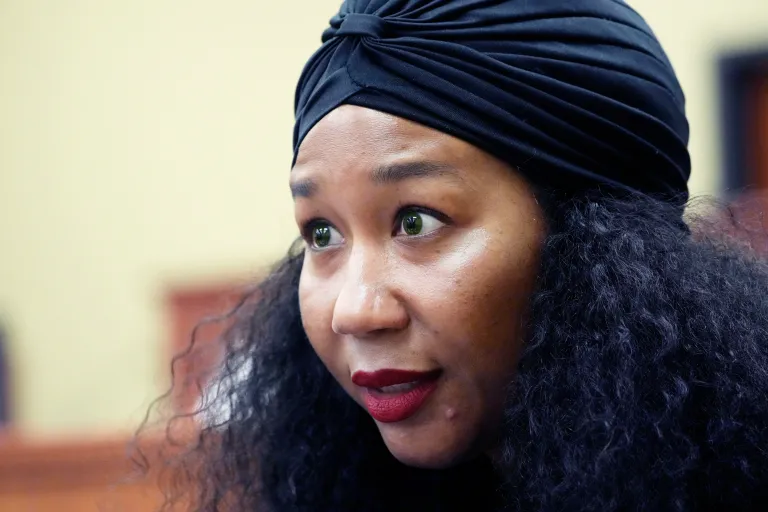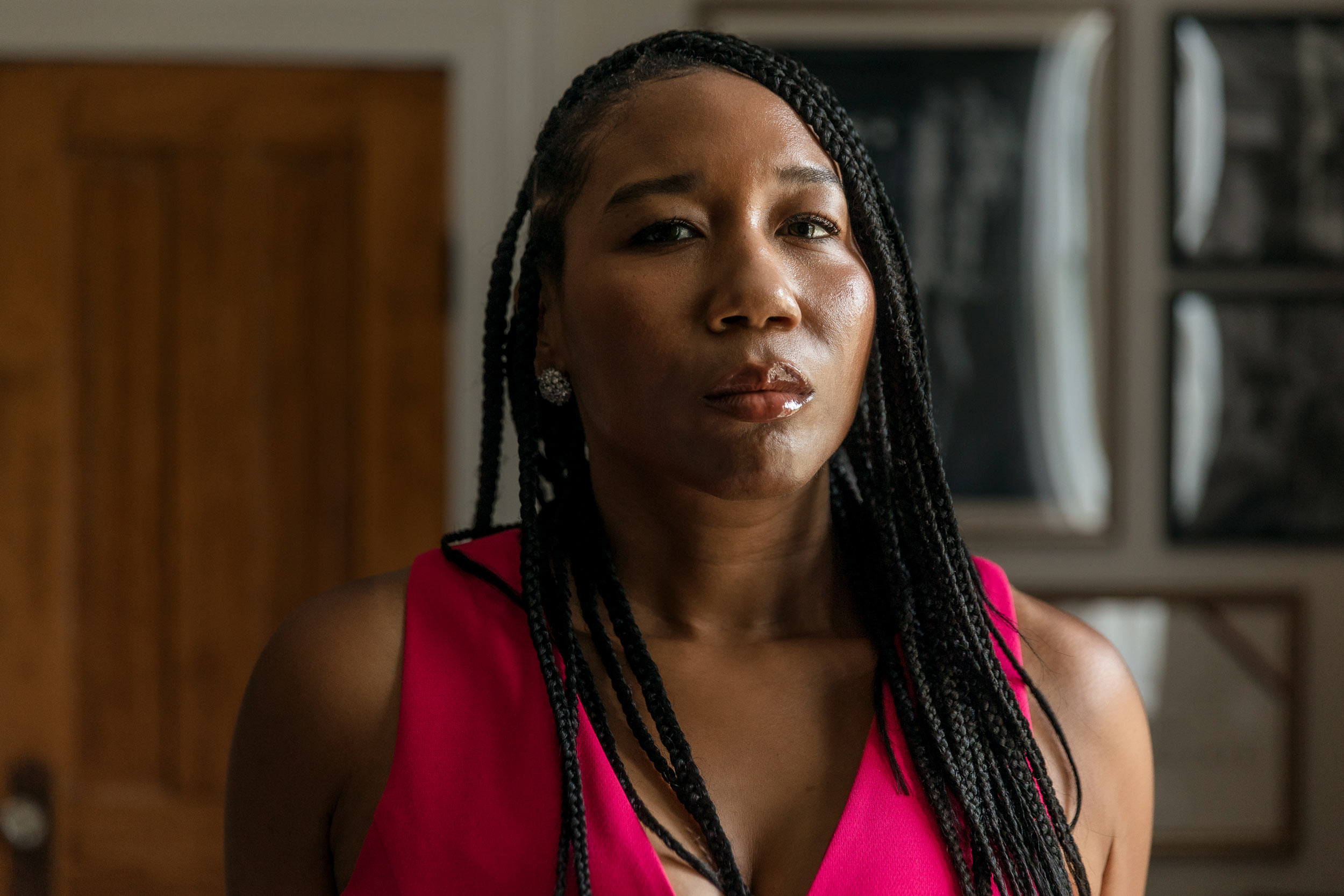‘Jim Crow Never Left’: Black Residents Sue Mississippi Police Department For Civil Rights Violations
Last month a Mississippi town made headlines after a leaked recording revealed racist and homophonic language and bragging about committing multiple killings during his tenure. Now the civil rights and legal advocacy organization JULIAN has filed suit on behalf of five plaintiffs claiming numerous incidents of Black residents being falsely arrested, unreasonable searches and seizures and unreasonable use of force by the local police department.
The lawsuit also outlines a pattern and practice of misconduct and violence against Lexington’s Black residents. Inspired by the landmark lawsuit brought by civil rights attorney Fred Gray in the aftermath of Bloody Sunday, JULIAN seeks to not only hold the city of Lexington and its police department accountable but also demand federal intervention.
Fired Mississippi police chief Sam Dobbins over racist recordings
‘I Shot That N***** 119 Times’: Mississippi Police Chief Fired After Racist Recording Leaks
“It’s both unconscionable and illegal for Lexington residents to be terrorized and live in fear of the police department whose job is to protect them,” said Jill Collen Jefferson, president and founder of JULIAN. “We need the courts and the Department of Justice to step in immediately.”
According to Jefferson, leaked audio of former Lexington Police Chief Sam Dobbins is the tip of the iceberg. The complaint alleges that sometime after Black residents began filing official complaints against the police in July 2021, there was an increase in harassment, threats and false arrests by the Lexington Police Department.
This does not include potential claims arising out of comments made by former Lexington Police Chief Sam Dobbins. As previously reported, Dobbins was fired after the disturbing recording was made public. Community residents also told the Mississippi Center for Investigative Reporting that Dobbins’ replacement was not “much better.”
In an interview with NewsOne, Jefferson described a community in crisis. Situated approximately an hour north of Jackson, Mississippi, Lexington is about 86 percent Black, with an estimated population of 1,576.
“Specifically, what the suit calls out and asks that the cops be restrained from doing is harassing, coercing, threatening, assaulting, all of those things that they’re doing to the Black citizens of Lexington,” Jefferson said. “The other thing that this suit asks for apart from that is that there be a citizen complaint board set up.”
Jefferson also explained that the court could compel Lexington officials to request assistance from Mississippi’s governor. She said the governor could proactively intervene and direct officials to address documented issues with the Lexington police department.
“It is within his authority to send police there to make sure that the police in Lexington are not violating people’s rights,” she said.
It’s unclear how state intervention would play out, considering the recent finding of no wrongdoing on behalf of a state trooper involved in an incident of police brutality in McComb, Mississippi. But Jefferson and her team are pursuing all available remedies on behalf of the plaintiffs and similarly situated Lexington residents.
According to the complaint, over 200 Black residents have lobbied either formal or informal complaints involving negative interactions with the Lexington police department. It further alleges violations of residents’ first, fourth and fourteenth amendment rights.
The complaint outlines instances of roadblocks near the predominantly Black high school during school-held events but no comparable treatment of events at the predominantly white high school—several specific incidents of retaliatory arrests and detentions of multiple Black residents.
Plaintiff Eric Redmond, a former law enforcement officer in Tchula and Pickens, who was serving as the Canton, Mississippi fire chief at the time of the filing, described an incident involving Dobbins and other police officers. According to the complaint, Redmond went to the station to post bail for his sister only to learn her bail amount had nearly tripled without explanation. Redmond reportedly wanted a reason for the change in bail and was instead met with aggressive action from the arresting officer at the behest of Dobbins.
The suit further alleges that Dobbins’ racism and violence is proof of the city’s indifference to the constitutional violations caused by its police department.
“On the recording in question, Dobbins, a Lexington official at the time, proves that by pattern, practice and custom/policy, he and thereby LPD encouraged officers to treat people brutally based on race and sexual origin and to impose unlawful, cash-only fines without mercy,” read the complaint.
Named in honor of civil rights legend Julian Bond, Jefferson described the organization as a mixture of the NAACP Legal Defense and Educational Fund, pre-1966 SNCC and a tech firm. While broadly focused on civil and human rights violations, the organization sees addressing racialized terror as central to its core mission. JULIAN has also worked with other organizations in the region, including the ACLU of Mississippi, Mississippi Bail Fund, and the People’s Advocacy Institute.
“In these little towns in the south, Jim Crow never left,” Jefferson said. “What people need to understand is that this is not a thing of a bad apple or rotten apple. This is a thing of a rotten tree. It never stopped. It never let up. We just stopped paying attention.”
She also said it was important for the community to be healed and made whole. From her conversations with residents, little has changed since Dobbs was fired.
“We want this court to appoint somebody to monitor the enforcement of all of these things,” Jefferson said. “Because, as we’ve seen in Lexington, you cannot trust them to do it themselves.”




.jpeg)




.png)
.png)
.png)
.png)
.png)
.png)
.png)
.png)
.png)
.png)
.png)
.png)
.png)
.png)
.png)
.png)
.png)
.png)





